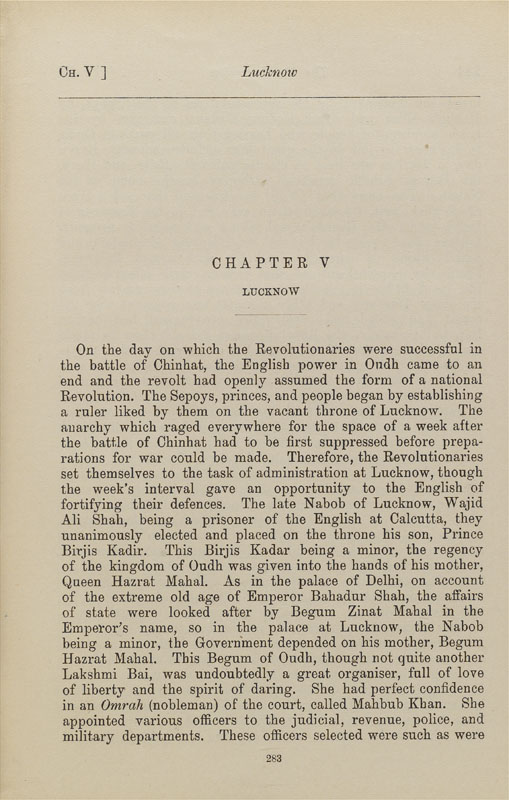Oh. V ] Lucknotv
CHAPTER V
LUCKNOW
On the day on which the Revolutionaries were successful in
the battle of Chinhat, the English power in Oudh came to an
end and the revolt had openly assumed the form of a national
Revolution. The Sepoys, princes, and people began by establishing
a ruler liked by them on the vacant throne of Lucknow. The
anarchy which raged everywhere for the space of a week after
the battle of Chinhat had to be first suppressed before prepa¬
rations for war could be made. Therefore, the Revolutionaries
set themselves to the task of administration at Lucknow, though
the week's interval gave an opportunity to the English of
fortifying their defences. The late Nabob of Lucknow, Wajid
Ali Shah, being a prisoner of the English at Calcutta, they
unanimously elected and placed on the throne his son. Prince
Birjis Kadir. This Birjis Kadar being a minor, the regency
of the kingdom of Oudh was given into the hands of his mother.
Queen Hazrat Mahal. As in the palace of Delhi, on account
of the extreme old age of Emperor Bahadur Shah, the affairs
of state were looked after by Begum Zinat Mahal in the
Emperor^s name, so in the palace at Lucknow, the Nabob
being a minor, the Government depended on his mother, Begum
Hazrat Mahal. Tbis Begum of Oudh, though not quite another
Lakshmi Bai, was undoubtedly a great organiser, full of love
of liberty and the spirit of daring. She had perfect confidence
in an Omrah (nobleman) of the court, called Mahbub Khan. She
appointed various officers to the judicial, revenue, police, and
military departments. These officers selected were such as were
283
|








